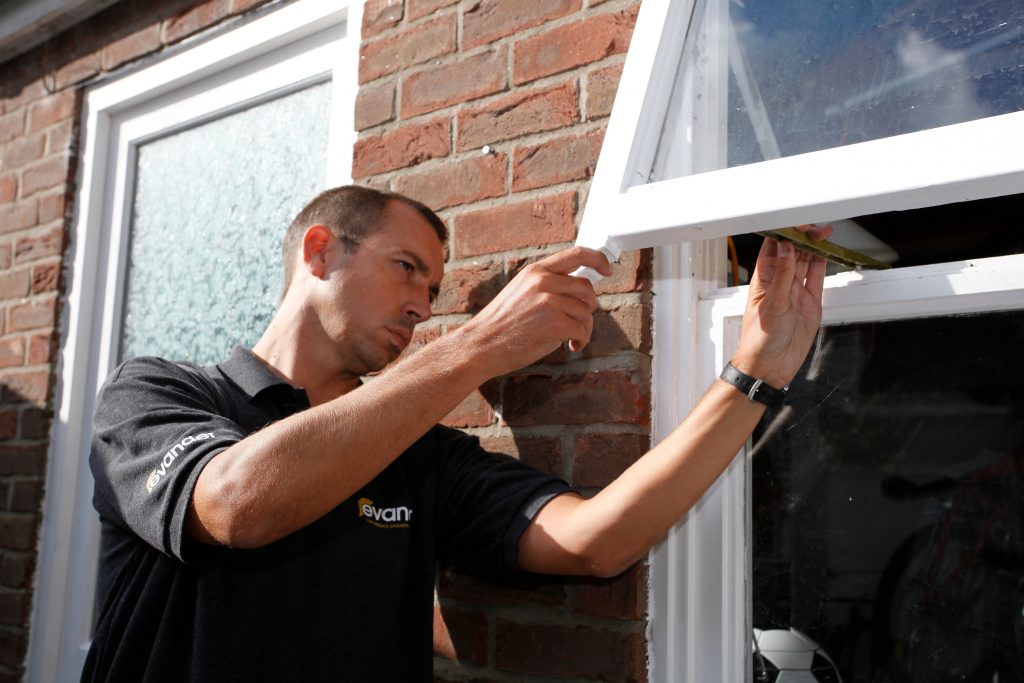Evander, who offer a 24-hour emergency locksmith service across the UK, share tips for communicating clearly with customers.
When you’ve been a locksmith for a number of years, the job can become almost second-nature. While this is brilliant for your day-to-day efficiency and your ability to deal with whatever is thrown your way, it can cause complacency, particularly where communication with customers is concerned.
It’s a trap that we’re all guilty of falling into at one point or another; just because you see the same issue day in, day out, doesn’t mean that your customer is going to have any knowledge of it prior to your arrival. Having to explain the same thing over and over again can be frustrating, but taking the time to communicate with your customers can only reap rewards in the future. This may manifest as repeat business, favourable reviews for your services or simply word-of-mouth marketing, all of which will ultimately benefit your earning potential.
The argument for good customer service is clear, but in practice we can all be guilty of failing to give 100%. In this article, national locksmiths Evander give their top tips on how to turn customer communication into customer satisfaction.
Explaining your jargon
 Working within any industry begins with a learning curve, and it’s likely that when you started your training, many of the common terms used by your co-workers were rather alien. For customers, the jargon used by locksmiths can cause worry and confusion, particularly where they are not fully explained. This can lead to confusion over the work that needs to be done, not to mention what is expected of the customer after the initial contact.
Working within any industry begins with a learning curve, and it’s likely that when you started your training, many of the common terms used by your co-workers were rather alien. For customers, the jargon used by locksmiths can cause worry and confusion, particularly where they are not fully explained. This can lead to confusion over the work that needs to be done, not to mention what is expected of the customer after the initial contact.
Taking the time to speak to your customers is important, as it helps you to identify additional issues, prepare the customer for any aftercare and leaves them feeling that they have received good service. As much as it’s tempting to rush through ‘easy’ jobs, your customer may feel they have not been sufficiently cared for, especially where they have been the victim of a crime.
The most common areas of confusion tend to centre around the following:
- Anti-snap lock
Lock snapping is a common problem in some areas of the UK, but unfortunately it’s not a very well-understood issue. Recommending and fitting an anti-snap lock can help to put the customer’s mind at ease, but it’s important to explain to them exactly how it works to avoid confusion in the future. ‘Anti-snap’ implies to a layperson that the lock will not snap at all, when in fact it is designed to snap, just in a different place, thus keeping the lock secure.
- Make safe
If you provide make-safe services, it’s always important to explain to the customer that ‘make-safe’ does not mean ‘make 100% secure’. In an emergency, fitting a basic lock and/or boarding up a window helps to ensure the residence has a basic level of security and that broken glass does not pose an injury risk. It’s therefore important to explain to the customer clearly that follow up work is required as soon as possible.
- Lock types
The difference between a deadlock and a mortice lock – for example – may be obvious to you, but for a customer who has never had to deal with a locksmith before, some clarification is often welcome. Taking the time to explain the differences and helping the customer to understand how their locks work will help to make sure they’re able to look after it properly in the future.
Calming a distressed customer
 Attending emergency jobs where a customer has been the victim of a crime such as forced entry or vandalism can mean having to deal with heightened emotions and upset. Many people in this situation will want some kind of reassurance, and being communicative is a good way to put them at ease. Take the time to listen to them about the incident, as this not only helps them to feel that they are being supported, but it will also help you to identify aspects of the work which may require further care and attention.
Attending emergency jobs where a customer has been the victim of a crime such as forced entry or vandalism can mean having to deal with heightened emotions and upset. Many people in this situation will want some kind of reassurance, and being communicative is a good way to put them at ease. Take the time to listen to them about the incident, as this not only helps them to feel that they are being supported, but it will also help you to identify aspects of the work which may require further care and attention.
Rather than attending the site, completing the job, and leaving for the next straight away, it’s always good practice to ask the customer if they are happy with the work and if they have any further concerns. Simply lending a listening ear and reassuring them can do wonders, both for their peace of mind and your reputation as a locksmith.
The root of most issues can be traced back to a lack of communication or providing inaccurate information. Once you apply a high level of customer care and understanding to your day-to-day work, you may well find it ‘pays for itself’ through repeat business and positive word-of-mouth.

